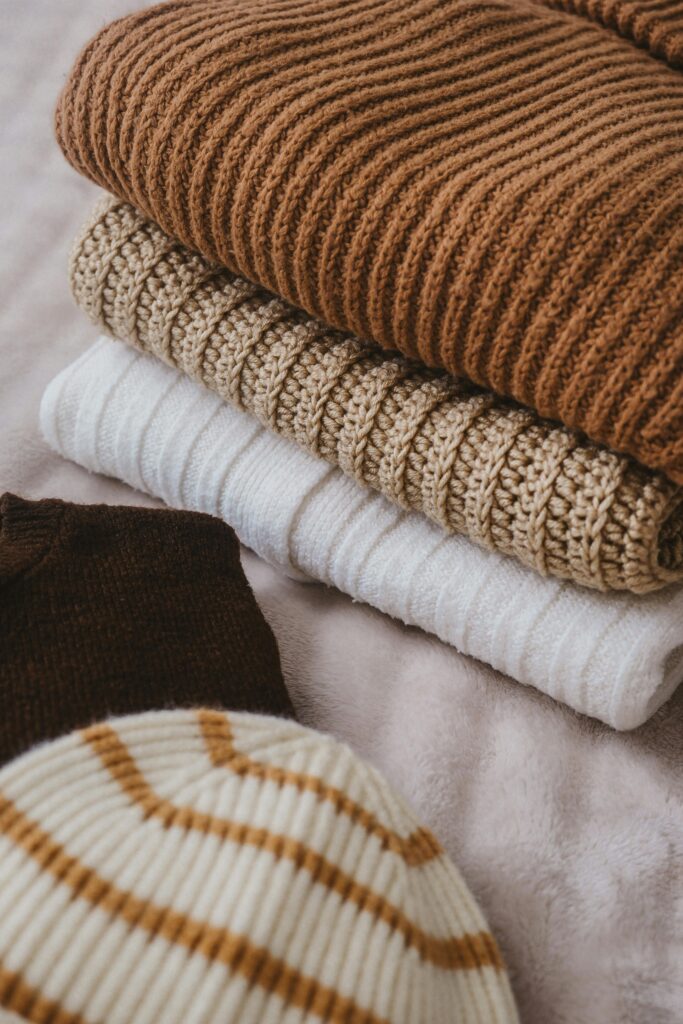Types of Woolen Cloth
Wool is obtained from the fleece of sheep, but it can also come from other animals like goats, alpacas, and camels. Depending on the fiber quality, processing techniques, and end uses, there are several types of woolen cloths, each with its own set of features.
1. Merino Wool
Merino wool is one of the most popular and highly sought-after types of wool. It comes from Merino sheep, which are known for their fine, soft fleece. Merino wool is finer than regular wool, making it exceptionally smooth and comfortable on the skin.
Properties:
- Softness: Merino wool is much softer than standard wool, making it ideal for wearing directly on the skin without causing itchiness.
- Breathability: Merino wool regulates body temperature and helps keep you warm in the winter and cool in the summer.
- Moisture-wicking: It has natural moisture-wicking properties, keeping you dry by pulling sweat away from the skin.
- Odor-resistant: Merino wool resists odors, making it a great choice for activewear and travel clothing.
- Elasticity: It’s naturally stretchy, which helps garments retain their shape.
Merino wool is used in high-end clothing such as suits, sweaters, and performance wear, making it a versatile material that offers both style and functionality.

Cashmere
Cashmere is a luxurious wool derived from the soft undercoat of cashmere goats. Known for its incredible softness and lightweight feel, cashmere is often considered one of the most premium types of wool available.
Properties:
- Luxurious Softness: Cashmere is extremely soft and lightweight, making it ideal for delicate, high-end clothing such as shawls, scarves, and sweaters.
- Insulation: Despite its lightness, cashmere is highly insulating, providing warmth without the bulk of heavier fabrics.
- Durability: Cashmere fibers are strong, and with proper care, cashmere garments can last for years.
- Breathable: Cashmere is breathable, ensuring comfort across various temperatures.
Cashmere is used in high-fashion garments like sweaters, cardigans, and wraps. Though it’s more expensive than other wool types, its unparalleled softness and insulating properties make it highly desirable.
